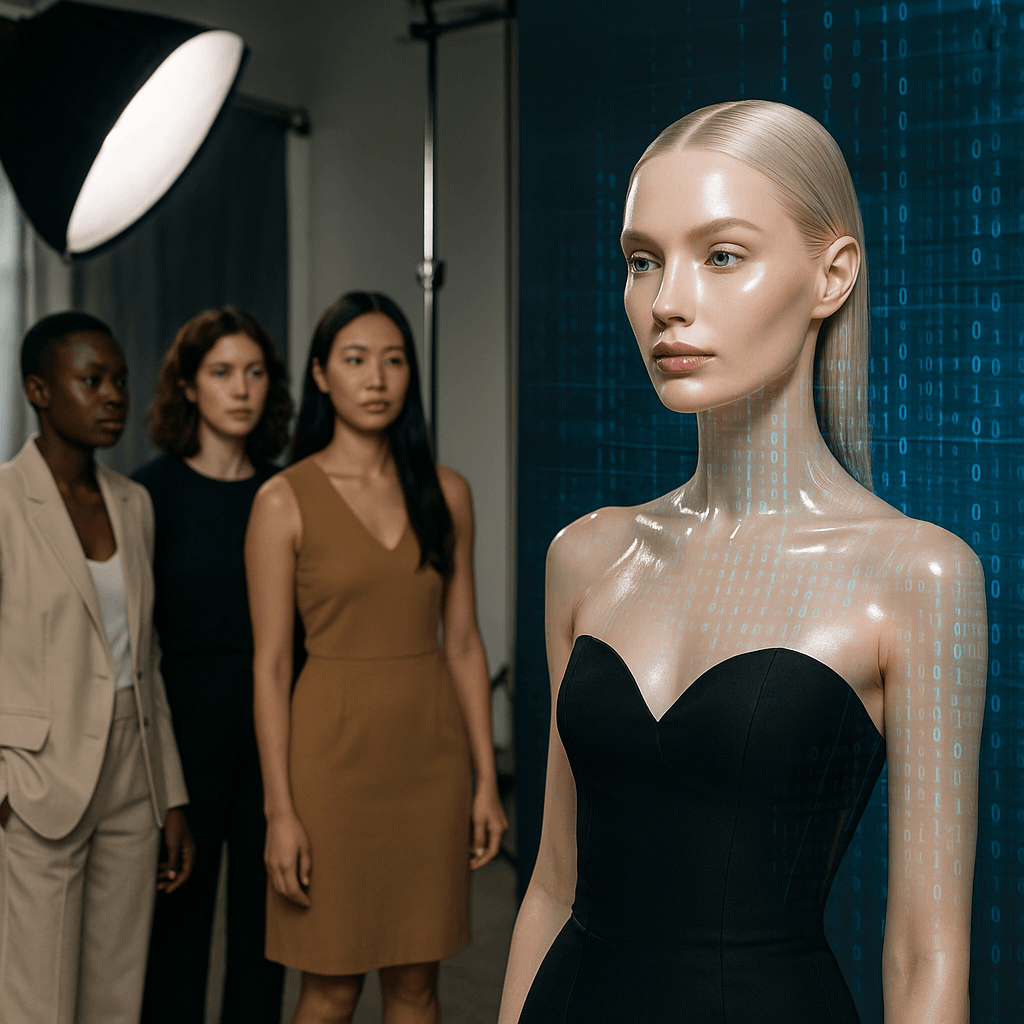TL;DR
- - Vogue's AI model ignites debate on fashion authenticity.
- - AI-driven models challenge traditional jobs, cut costs.
- - Future may normalise AI in creative processes.
- - Investment: AI in fashion can focus on efficiency, cost-savings.
Imagine flipping through the July issue of Vogue only to find the latest Guess ad showcasing a model that, while perfect, is artificial. This marks a transformative moment in fashion, where traditional beauty is meeting digital perfection. As the line between mannequins and main models blurs, the industry is on the precipice of redefining authenticity, with varied implications for models, creatives, and the AI industry itself.
Opening Analysis
The latest uproar in the fashion industry involves Vogue's July print edition, featuring an AI-generated model in a Guess advertisement. Her appearance sparked heated debates on social media and brought attention to the growing use of artificial intelligence in fashion. While some see it as Vogue endorsing futuristic aesthetics, others claim it's the dawn of "artificial diversity" and undermines human talent on runways.
Market Dynamics
AI's penetration into modeling isn't new. Brands like Levi’s have collaborated with AI studios as early as 2023 to diversify their ad campaigns while saving costs, despite accusations of taking shortcuts on authentic diversity. Industry insiders argue that this technology significantly reduces operational expenses and democratizes access, but at the potential cost of artistic careers and authenticity.
Technical Innovation
AI-generated models promise seamless adaptability, with CJIs capable of embodying any look, fabric, or scene, enhancing productivity and creativity. However, this raises concerns about "robot cultural appropriation," as seen in the criticism following Levi’s "diverse" AI models. The technology still lacks the nuanced imperfections that embody human charm, yet it's carving a niche in high-volume content needs.
Financial Analysis
AI modeling is driven by economics, offering brands massive cost-savings and efficiency enhancements, especially for e-commerce players who require extensive digital content. Companies, including Calvin Klein and Mango, have embraced these digital efficiencies. While this boosts their financial metrics, it also shifts budgets away from traditional modeling careers.
